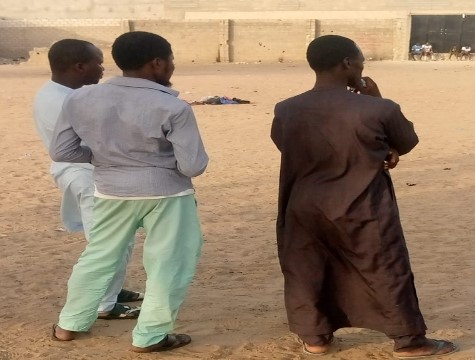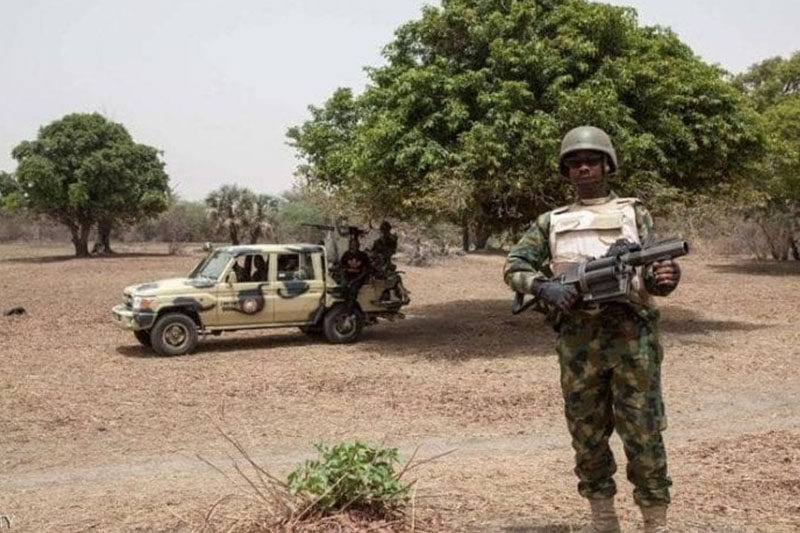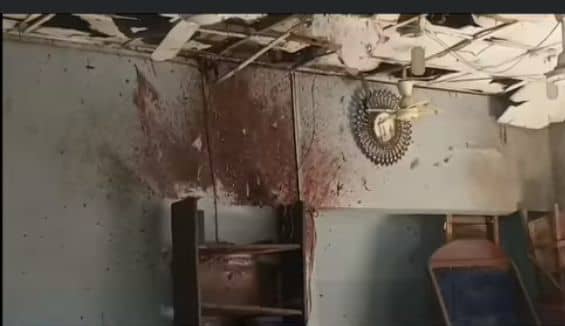‘We have 6,900 Boko Haram fighters in custody. We won’t reintegrate them into society because they have committed crimes. There’s a process to be followed, including transitional justice’
The Borno State government says 6,900 surrendered fighters of the Jamā’at Ahl As-Sunnah lid-Da’way Wa’l-Jihād (JAS), more commonly referred to as Boko Haram, will face transitional justice.
Hajiya Zuwaira Gambo, the Commissioner of Women Affairs and Social Development, made the announcement at the conclusion of a best practice dissemination and learning programme organised by the Allamin Foundation for Peace and Development, held in Maiduguri, the capital of Borno State, on Tuesday, July 30.
She said 200,000 repentant fighters and their families had laid down their arms and given themselves up to the state government since the mass surrender began in 2021.
“They are in custody. However, more than 80,000 of those in custody are innocent victims who were forcefully abducted when their communities were occupied by the insurgents. They were used as slaves by Boko Haram.”
Gambo said that nearly 9,000 people had already been reintegrated into society.
“We have about 6,900 genuine Boko Haram fighters in our custody – and they will face transitional justice because they have committed crimes. We are working on that; they are real fighters, not innocent victims who were abducted by the insurgents.
“We won’t reintegrate them into the society yet because there’s a process to be followed, including transitional justice,” she said.
Transitional justice is a peace-building mechanism that seeks to address the legacies of atrocities committed during the 15-year insurgency. It aims to end recurring cycles of violent conflict through a range of responses, including restitution, reconciliation, prosecution and amnesty.
Mai Gana, an independent legal practitioner in Maiduguri, said transitional justice involved repentant insurgents seeking forgiveness from people in the communities they had harmed.
“To promote peaceful coexistence, once they have gone through the system and are fully rehabilitated, the former fighters live in harmony alongside their victims.”
Gana said transitional justice was necessary because the former fighters had caused “immense harm”.
“Traditional courts may not be equipped to handle such cases,” he said, noting that all stakeholders – including the Ministry of Justice, the Nigerian Bar Association, NGOs and civil society organisations (CSOs) – needed to participate in constituting the transitional justice system.
“The primary goal of transitional justice is to ensure fairness, erase vengeance, promote peace and allow individuals – surrendered insurgents and victims of the insurgency – to return to their normal lives.
“The government is responsible for forming a transitional justice system, which will help to address the wrongs committed in affected communities and promote healing,” Gana said.
Mohammed Ibn Mohammed, a community leader, said dialogue was the most effective approach to resolving the more-than-a-decade-long conflict.
He emphasised the importance of introducing transitional justice into the process.
“In the past, the government overlooked the crucial role community leaders play in reintegrating former fighters. This has led to numerous misunderstandings.
“Now the government recognises the value of community involvement in the reintegration process. It is crucial, not only for the surrendered fighters but also for the communities which bore the brunt of the violent conflict.
“It is extremely difficult for ordinary citizens to accept former fighters back into their communities. Many people do not trust them and do not believe they have truly repented. Community leaders can help in the reintegration process.”
Hajiya Hamsatu Allamin, the founder and executive director of the Allamin Foundation for Peace and Development – a not for profit, non-political, non-religious and non-governmental peacebuilding organisation – said the surrendered individuals regretted their involvement with the JAS.
They had told her that ignorance had led them to be brainwashed by insurgents and they had expressed remorse for what they had done while they were members of the extremist group.
“If Boko Haram used their ideology based on religion to brainwash people into joining them, we must also use religion to tell them the truth. Therefore, I suggest that the government use religion to correct this troubling narrative,” Allamin said.
She said more than 800 women and girls had gone through the Allamin Foundation’s programme, “Building Bridges of Reconciliation: A Community-Based Approach to Deradicalisation of Women and Girls in Borno State”.
“They have been deradicalised and are now contributing to society.”
She was speaking at the latest graduation ceremony of women and girls who had completed the programme.
Allamin said the deradicalised women had helped to get at least 190 of their relatives who were involved with the JAS to surrender.
“They have embraced a new life free from violence and have become responsible members of society, contributing to peacebuilding and the overall development of their communities.”
Allamin praised the Borno State government for introducing the “Borno Model” that had succeeded in getting repentant insurgents and their families to surrender.
She urged the government and other stakeholders to spread the message of peace and reconciliation to all parts of the state.
In his message at the event, Major-General Waidi Shuiabu, the Theatre Commander, Operation Haidin Kai, said the foundation’s efforts were appreciated.
He gave his assurance that the military would continue to collaborate with the organisation.
Shuaibu said the latest operations by the military had led to the rescue of more than 500 women and children.
AYSHA MUSTAPHA KOLOMI









